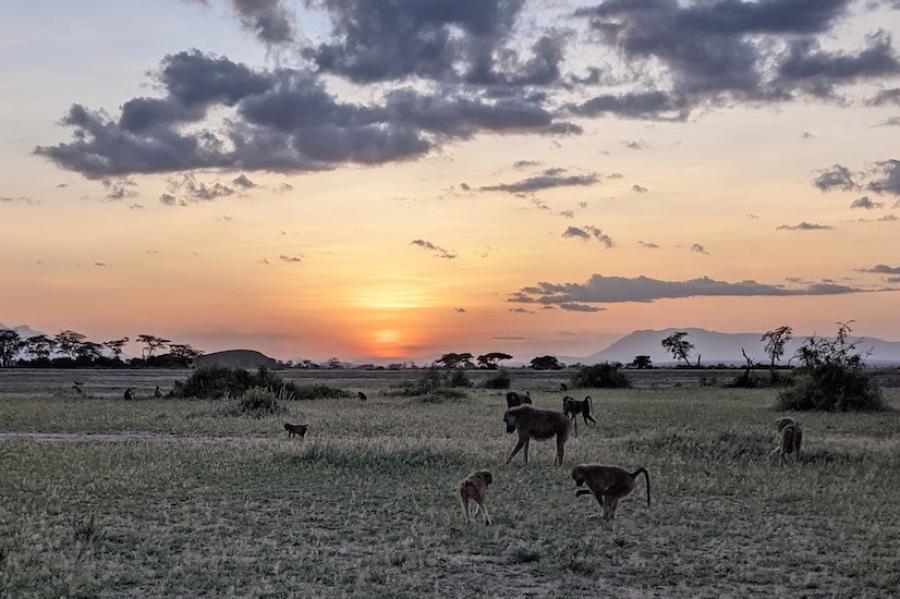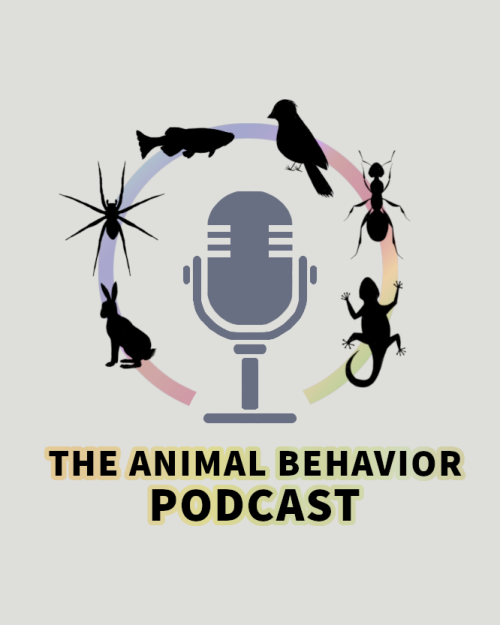Do you ever wonder why some frogs use complex calls to attract mates? Or what tropical birds eat? Or how shrimp see?
Matthew Zipple does. A Klarman Postdoctoral Fellow in neurobiology and behavior in the College of Arts and Sciences and an animal behavior expert, Zipple studies highly social animals, such as primates, whales, elephants and humans. But he’s also perpetually curious about research outside his area of expertise.
To learn more about the vast array of animal behaviors and to share this knowledge with the public, Zipple started The Animal Behavior Podcast last year with fellow animal behavior researcher Amy Strauss, a science educator and doctoral student at the University of Massachusetts. Season 2 launches on May 2.
“I love talking with people whose work is in my field but not immediately adjacent,” Zipple said. “The personal interaction, the details of projects, the stuff that doesn’t end up in papers.”
Sponsored by the Animal Behavior Society, the podcast illuminates the research of expert and emerging scientists, as well as their scientific journeys, through casual conversations. It gained a worldwide following in its first season and is available on Apple Podcasts, Spotify, and Google Podcasts.
In Season 1, Zipple and Strauss took turns interviewing researchers. The ten episodes delved into a variety of topics, including the perceptions of shrimp that clean fish; extreme mating behavior among spiders; and mammals with weapons (think: skunk spray).
“My ambition for the podcast is to provide the opportunity for myself and listeners to engage with animal behavior research material at a broader scale,” Zipple said. “It’s easy to get stuck in a specialized niche. That’s good in some ways, but it’s easy to lose the bigger picture, the general goals of the field and the direction of the field and how things connect.”
For Zipple, a highlight of the first season was interviewing his friend and graduate school classmate Eleanor Caves, assistant professor at UC Santa Barbara, who studies visual perception in animals including shrimp and zebra finches.
“Having a public-facing conversation let me ask Eleanor questions I wouldn’t normally ask a friend, like ‘why have you devoted your whole life to studying basic questions about vertebrate vision?’ It’s a very specific thing for a person to spend their life doing!” Zipple said. “I felt like I was learning new things about her science, but also about my friend.”
Strauss particularly enjoyed her conversation with Dr. Eileen Hebets, who is now the President of the Animal Behavior Society.
“Beyond her innovative research and enthusiasm for her study subjects (arachnids), Eileen is deeply committed to communicating science and educating all people about the value of basic science research,” Strauss said. “We discussed the many ways that we, as scientists, can engage the public in science and the research process.”
Most of the podcast’s listeners are professional animal behavioral researchers and students in the field, Zipple said. But the podcast also draws amateur animal enthusiasts. The conversations range into personal territory for some of the guests: increasing diversity in STEM, for instance, and overcoming imposter syndrome.
Season 2 will offer an even wider array of topics, including biomechanics, animal personality and neurobiology, and “lots of evolution,” Zipple said. Two education specialists will offer related materials for undergraduates.
“I am extremely excited about the growth of the podcast,” Strauss said. “We're hoping to connect with a more diverse audience around the globe, and to add in some more engagement with our listeners. And I can't wait to see how the education team weaves our podcast episodes into usable lessons for undergraduate animal behavior classes.”
Zipple said the podcast’s second season will branch into sociological questions, such as leadership and economic inequality.
“In my experience, it can be hard for sociologists and biologists to talk to each other,” Zipple said. “I think it’s an important conversation to have and worth doing.”
The second season will also offer an increased level of production, thanks to seven new volunteer team members, including a sound director (a graduate student who studies both frog acoustics and music production) and three content editors, one of whom worked for many years on NPR’s show Fresh Air with Terry Gross. The season will also be recorded in the Cornell Broadcast Studios.
“We knew there were people in the animal behavior community who would have skills they could bring forward to make the podcast substantially better,” Zipple said. “In addition, recording my end of the conversations in the broadcast studio, working with its director, Bert Odom-Reed, will increase the quality of the sound that we're able to record. But perhaps more importantly it will allow me to completely focus on the conversation at hand.”
Zipple added that being a Klarman Fellow, which provides three years of support free of teaching obligations, has allowed him to pursue both research and non-research projects that he’s passionate about, including The Animal Behavior Podcast.





